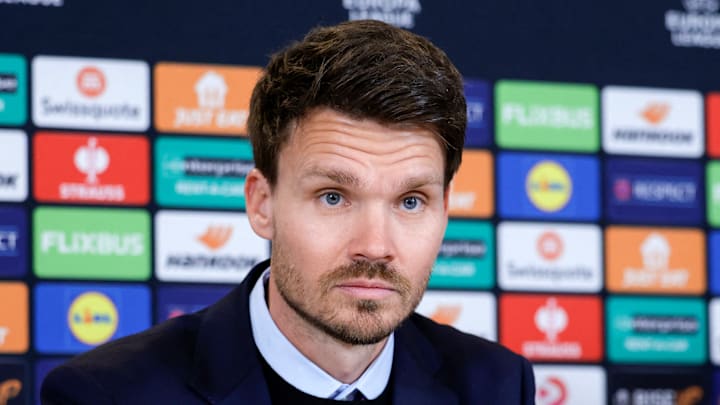Danny Röhl refused to single out Yousef Chermiti for blame following Rangers’ 3-0 defeat to Brann, insisting the striker’s underwhelming display was secondary to the wider collective failure he witnessed on his debut night in charge.
£8m summer signing Chermiti, who was given the nod to start through the middle ahead of both Bojan Miovski and Danilo, struggled throughout.
He passed up a major chance midway through the first half with a tame header straight at the goalkeeper and often appeared short of conviction, hesitant in movement and low in confidence.
But when asked directly about his performance post-match, Röhl shifted the conversation firmly back to the bigger picture.
“We can speak about individual performance, but our performance as a group was not good today,” he said.
“I took him today because I saw a high line and he has power, he can go deep. That was the reason why I chose him. But again, the key message is the team performance.”
His response offered two insights into his thinking: first, Chermiti’s selection was tactical; second, individual form will always be evaluated through the lens of collective execution.
Röhl did not deny the striker’s difficulties, but he implied no forward could thrive in a side that currently lacks cohesion, belief and structural support.
The head coach made it clear the breakdown lies not just in finishing, but in mentality and unity.
“We blame more as individuals instead of acting as a group,” he warned.
“We have to suffer together and help each other. If we just try to play our game individually, it’s hard.”
That phrase: “act as a group,” is likely to define how Röhl reshapes Rangers attack.
Strikers like Chermiti, who has been visibly burdened by pressure and misfiring confidence in recent matches, may only recover within a system that works for them rather than isolates them.
Röhl’s message was not one of condemnation but recalibration. He referenced “potential” within the squad and promised to “develop and improve the group,” suggesting he sees players like Chermiti as rebuildable rather than expendable.
Still, the German’s tone indicated urgency rather than patience. His warning was clear: roles will be reassessed through performances under pressure, with belief, movement and work-rate all now under fresh scrutiny.
Chermiti may have been spared direct criticism, but he has also been handed a silent ultimatum: improve within the structure Röhl is building, or risk being left behind by it.
Sunday will be an early indicator of whether he is trusted to respond. Now he must prove he can keep it.
